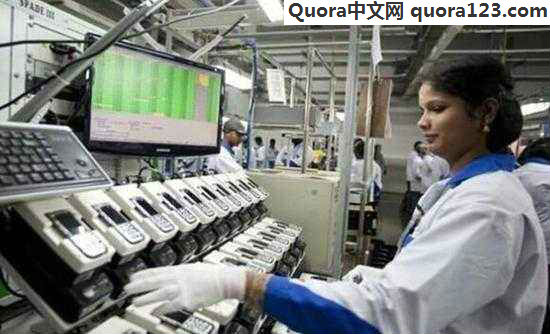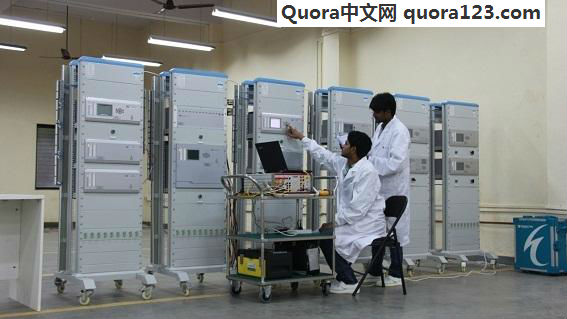为什么印度的生产成本高于中国?来看印度网友的分析
Why are manufacturing costs higher in India, compared to China?为什么印度的生产成本比中国高?【美国版知乎quora网贴翻译】Balaji
Why are manufacturing costs higher in India, compared to China?
为什么印度的生产成本比中国高?
【美国版知乎quora网贴翻译】
Balaji Viswanathan, Knowledge lover.
Updated Dec 1 · Featured on HuffPost and 2 more · Upvoted by Manish Rao CH, M.tech Mechanical Engineering & Manufacturing, Indian Institute of Technology, Bombay (2014) and Harshal Kasat, MS Mechanical Engineering & Manufacturing, Arizona State University (2016)
A number of my relatives run manufacturing plants in Tamil Nadu - a relatively developed state. My in-laws also have started recently importing from China [replacing their Indian suppliers] and I will tell you why costs are higher than in China.
1、Power availability: You start a plant and realize that power availability is not 24/7. In Coimbatore and other industrial places you get power for like 8 hours a day. That means the machinery lies idle for 16 hours and that wasted capacity adds to the cost.译文来源:Quora中文网 http://quora123.com/516.html
我有一些亲戚在泰米尔纳德邦开工厂,泰米尔纳德邦是相对发达的邦。我岳父家最近也开始从中国进口(取代他们的印度供应商),我会告诉你为何成本高于中国。
1、电力可用性:当你开了家工厂,并意识到电力不是全天候供应的。在哥印拜陀市和其他工业区,一天供电8小时。意味着机器闲置16小时,浪费的生产力增加了成本。
2、Cost of power: In India, we subsidize the power to farmers so much [farmers are a huge political base to regional parties] that the electricity companies either have to go bankrupt or charge huge amount for industries. Electricity cost is often higher than even in some developed countries.
3、Cost of labour: Getting good factory labour in places like Tamil Nadu has become extremely hard. The skilled ones are already in high paying industries. The unskilled ones are too hard to deal with. When we get labour from the north, they often move out without much notice [go to Diwali vacation and never return]. Skill building is very lacking. If you pay $250, the quality of labour you get in China is likely higher than what you get in India.2、电力成本:在印度,我们补贴农民很多(农民是地方政党巨大的政治基础),以致电力公司要么破产,要么向工厂收取巨额费用。电力成本总是很高,甚至高于发达国家。
3、劳动力成本:在泰米尔纳德邦这样的地方,获得熟练工人非常难。技术工人早已进入高薪工厂。非技术工人则很难缠。从北部雇佣工人,他们常常不通知就搬出去(去过排灯节然后再也不回来)。技术培训很少。如果你支付250美元,在中国得到的工人质量可能比印度的工人还高。
4、Cost of transportation: Given the poor roads, a shipment from India's north can take a week or more to reach India's south. Sometimes it is quicker and cheaper to actually get shipment from Shenzhen than Kolkata. Time is money and all those delays add to your cost. If I could get something in 2 days, I could sell it immediately rather than wait 2 months to sell it [add up the interest costs].
5、Bureaucracy: Starting a new plant or to add anything is very costly in time and money. You need to fill out a huge number of forms and grease a lot of palms just to do something legal & useful. Shipping across states is also very delayed [this is why the industry is pushing for GST]. Unless most of the Indian laws - especially the one dealing with factories and labour - are thrown out, corruption, delays and inefficiencies will remain.4、运输成本:因为路况不佳,一艘从印度北部过来的货船可能要一周或更多的时间才能抵达印度南部。有时候,从深圳来的货物比从加尔各答的还要便宜快速。时间就是金钱,所有的延迟都会增加你的成本。如果我能在2天内拿到货,我会马上卖掉,而不是等2个月再卖掉(增加利息成本)。
5、官僚主义:开新工厂,时间和金钱成本很高。你需要填很多表,盖很多手印。跨邦航运非常慢(所以工业推行消费税)。除非印度大多数法律,特别是工厂和劳动力相关的法律被废除,否则,腐败、拖延和效率低下将继续存在。
6、Anti-large enterprises: India grew up in the mindset that large industries are bad. While many laws changed since 1991, some of our laws, especially in textiles, are structured around small enterprises. Small businesses cannot have the scale to produce cheap and take on massive factories in China or Bangladesh. Thus, in the huge lucrative market of readymade garments, Bangladesh quickly took to #2 - leading to huge improvements in women development, while Indians are clinging on to outdated laws favoring small, cottage industries.
If India has to compete with China, we have to completely overhaul all the economic laws - taxes, labour, factories - we put in place since 1947. Otherwise we will continue to be costlier than Vietnam and Bangladesh.
186.2k Views · 6,314 Upvotes · Answer requested by Bhuvaneesh K6、反对大型企业:印度是在大型工业不好的心态中发展起来的。尽管自1991年以来,很多法律都改变了,但我们一些法律,尤其是纺织品相关的法律,都是围绕小企业制定的。小型企业无法像中国和孟加拉一样大规模生产廉价产品。因此,在利润庞大的成衣市场中,孟加拉国迅速升到第二位,引领了妇女发展的巨大进步。而印度人却仍然坚守过时的法律,支持着小型作坊式工厂。
如果印度不得不和中国竞争,我们必须彻底改革所有的经济法——税法、劳动法、工厂法,即1947年起我们就执行的法律。否则我们的制造成本将仍就比越南和孟加拉国高。
版权声明
我们致力于传递世界各地老百姓最真实、最直接、最详尽的对中国的看法
【版权与免责声明】如发现内容存在版权问题,烦请提供相关信息发邮件,
我们将及时沟通与处理。本站内容除非来源注明五毛网,否则均为网友转载,涉及言论、版权与本站无关。
本文仅代表作者观点,不代表本站立场。
本文来自网络,如有侵权及时联系本网站。
-
1
चाइना में रेडी और ठेले Local shops in china || L...
- 2
- 3
- 4
- 5
- 6
- 7
- 8
- 9
- 10
-
1
चाइना में रेडी और ठेले Local shops in china || L...
- 2
- 3
- 4
- 5
- 6
- 7
- 8
- 9
- 10












